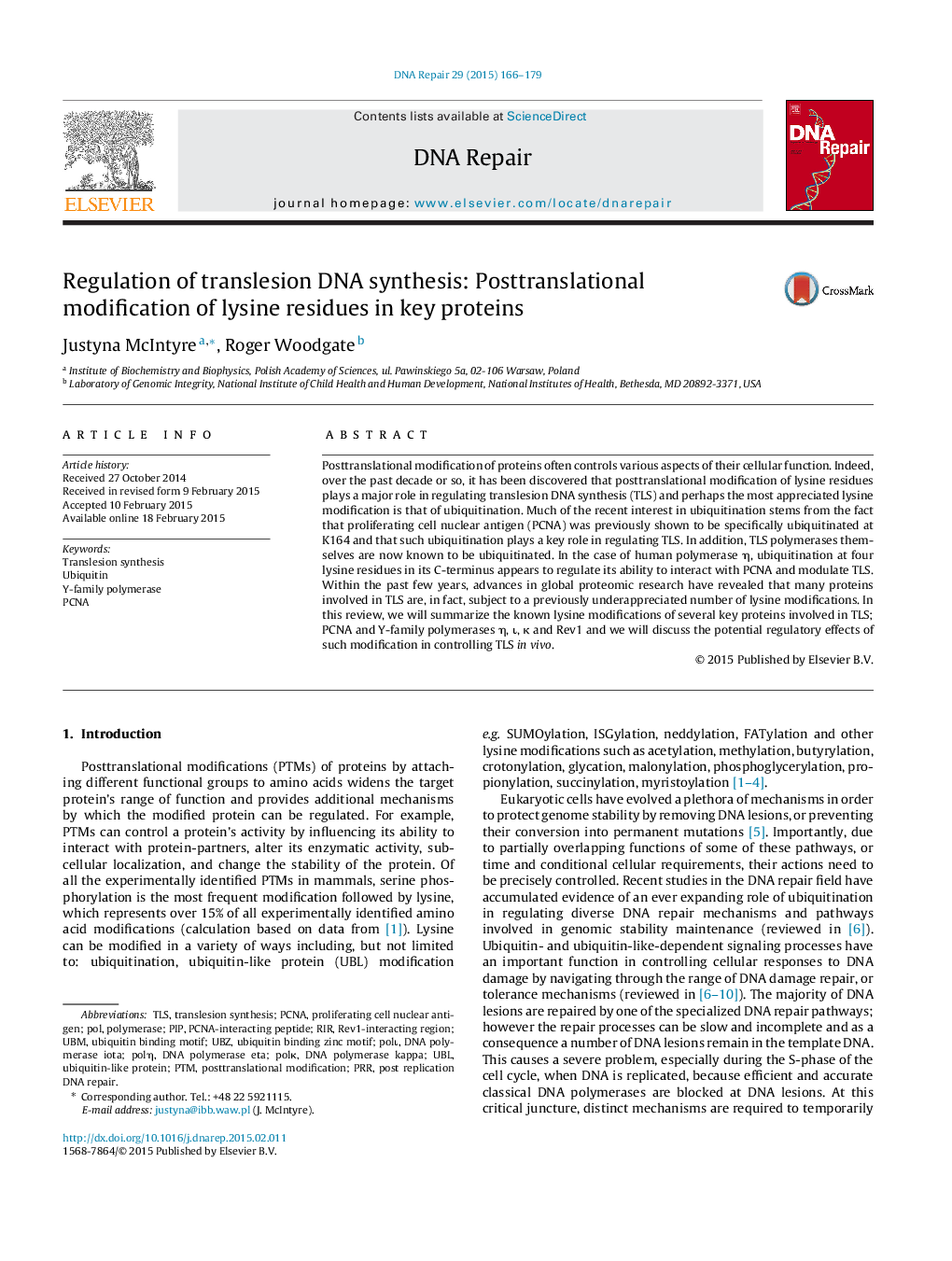| Article ID | Journal | Published Year | Pages | File Type |
|---|---|---|---|---|
| 8320646 | DNA Repair | 2015 | 14 Pages |
Abstract
Posttranslational modification of proteins often controls various aspects of their cellular function. Indeed, over the past decade or so, it has been discovered that posttranslational modification of lysine residues plays a major role in regulating translesion DNA synthesis (TLS) and perhaps the most appreciated lysine modification is that of ubiquitination. Much of the recent interest in ubiquitination stems from the fact that proliferating cell nuclear antigen (PCNA) was previously shown to be specifically ubiquitinated at K164 and that such ubiquitination plays a key role in regulating TLS. In addition, TLS polymerases themselves are now known to be ubiquitinated. In the case of human polymerase η, ubiquitination at four lysine residues in its C-terminus appears to regulate its ability to interact with PCNA and modulate TLS. Within the past few years, advances in global proteomic research have revealed that many proteins involved in TLS are, in fact, subject to a previously underappreciated number of lysine modifications. In this review, we will summarize the known lysine modifications of several key proteins involved in TLS; PCNA and Y-family polymerases η, ι, κ and Rev1 and we will discuss the potential regulatory effects of such modification in controlling TLS in vivo.
Keywords
Related Topics
Life Sciences
Biochemistry, Genetics and Molecular Biology
Biochemistry
Authors
Justyna McIntyre, Roger Woodgate,
